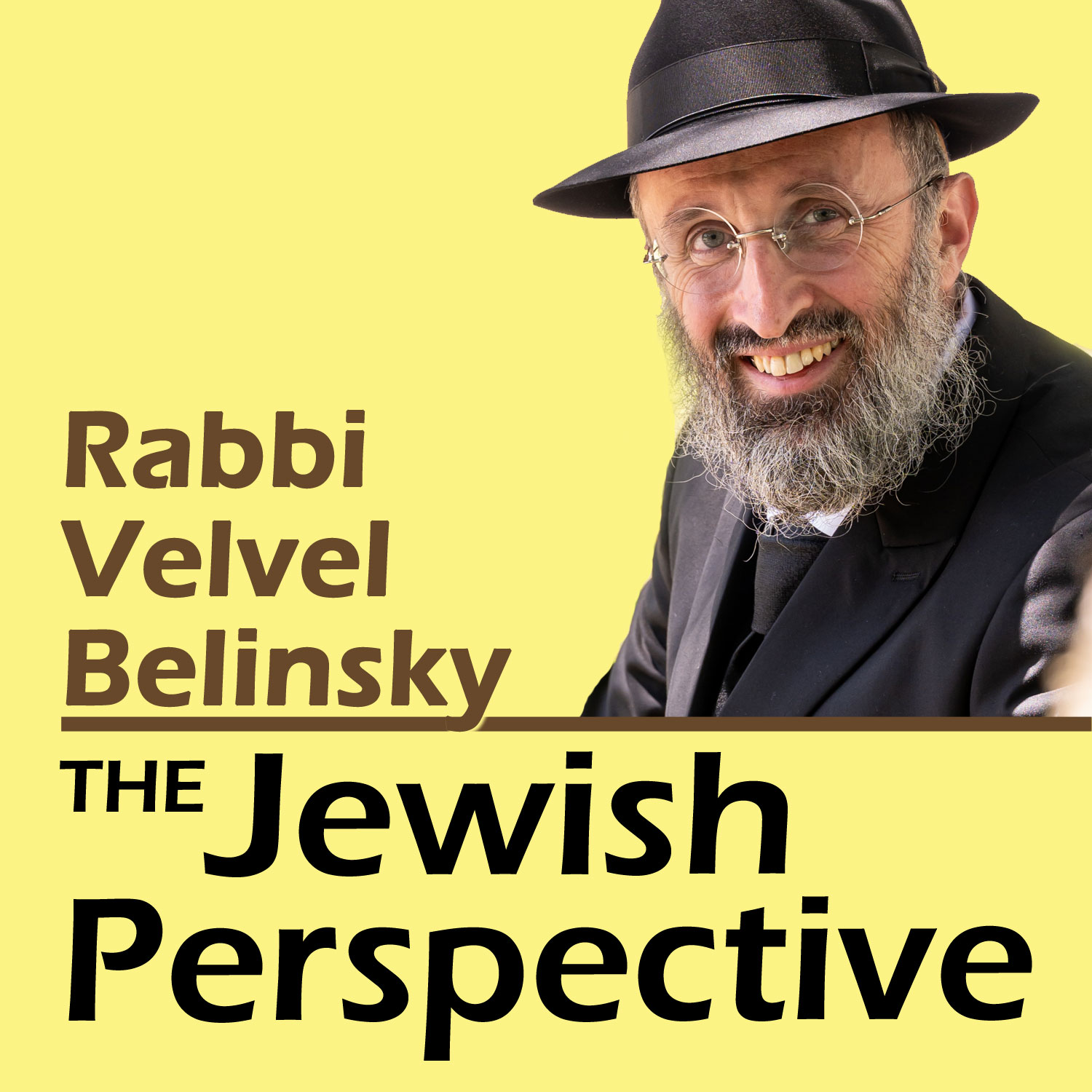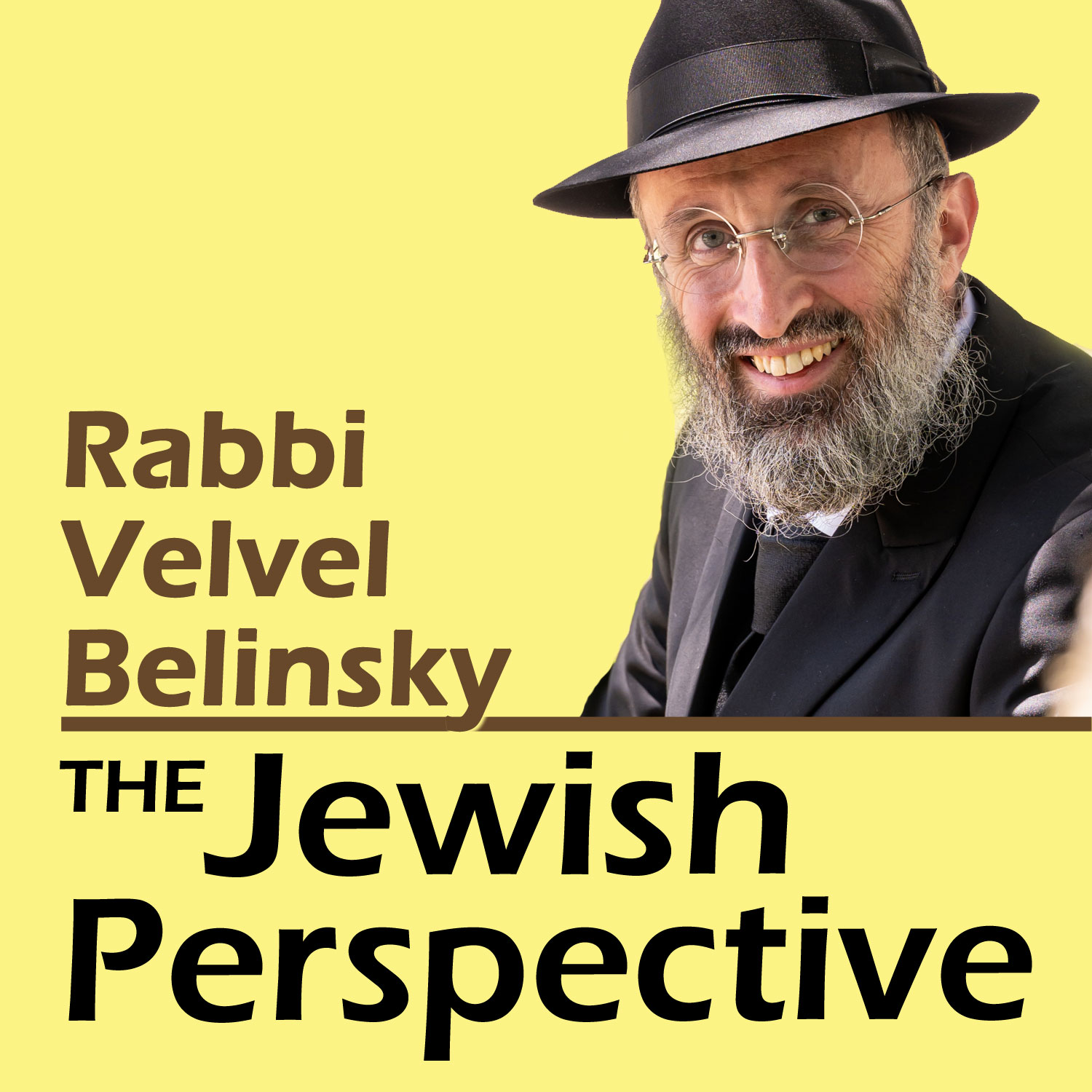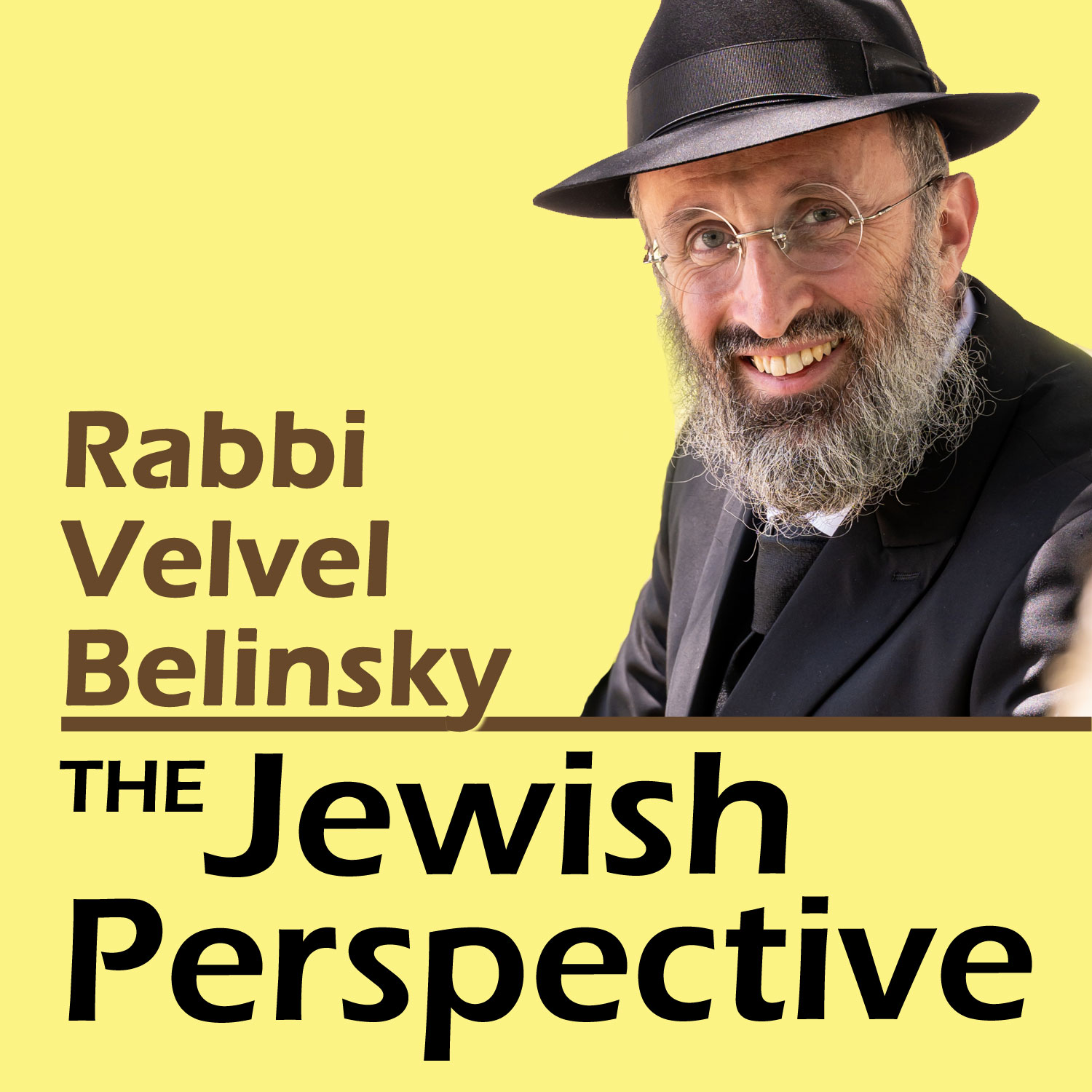Episode Transcript
[00:00:00] So there's a mitzvah to remember Exodus from Egypt every single day. It's a mitzvah to remember it. Just to mention it to yourself that we have left our slavery in Egypt. That's it. You're fulfilling this mitzvah. And by the way, this is why. It is one of the reasons why the end of Shema also mentions Exodus from Egypt. The third paragraph of Shema speaks about how God took us out of slavery. Because it's mitzvah to remember it every single day.
[00:00:30] Then also on the night of Pesach, we celebrate our Exodus and it said that we have to speak about it all day, all night. And the more we speak about it, the better.
[00:00:43] Really. These are two separate mitzvahs because we are remembering two separate things. And the key to realy is what the differences are is answering the question whether once you are free from slavery, are you actually free? If you are not a slave anymore, does it mean that you are a free person? And the answer is no. Because freeing from slavery only means that you don't have any external limits anymore. Nobody's standing over you with a whip to make sure that you're going to do the tasks that you don't want to do.
[00:01:22] But it doesn't mean yet that you're a free person. Very often people define freedom as ability to do what you want. As long as I do what I want, I'm a free person. Well, if that's a definition, then a drug addict that has all the money he wants for his drugs is the freest person in the world because all he wants is drugs. He has the ability to buy his drugs. So that's why if we really want the world to be a free society, all we need to do get everyone on drugs and give them enough money to sustain themselves for a while, till they all die. They will be freest people in the world as long as they live. And that's it. So if you're fighting for freedom, that's what you need to do. The truth obviously is not the free person is somebody who does what he wants. There are many people who do what they want. And at the moment it seems like they're doing what they want. But then later, on a day, a week, a month, maybe even 10 years later, they realized they were doing something wrong. You come over to a drug addict and you ask him, do you want drugs? He'll tell you, sure, I want drugs. And then you will ask him the most important question. I know you want drugs. Do you want to want Drugs. And I can promise you he'll say no. He wants drugs, but he doesn't want to want drugs. A free person is not someone who does what he wants. A free person is someone who does what he wants to want. So you can have a person who does what he wants and he's not going to be free. But in the meantime he's very happy because he does what he wants. Or you could have a person who knows what he wants to want. I want to want to study in school now. I wish I would want to study in school because I know that's what I need to do. Do I want to study school? No, I don't want to study in school. It's a pain in the neck, it's annoying and I hate my teachers. I don't want to study in school, but I want to want to study school. That's why I am in school now.
[00:03:29] So this person will be miserable. This person will not be doing what he wants, but he's going to be a free person.
[00:03:37] So you end up seeing that sometimes people who are happy with what they're busy with and living up their lives, they're not free. Then you see people who feel very restricted and confined and they are free. So we see that freedom has really nothing to do with doing what you want or feeling free. Also, it is an interesting thing, freedom, and even secular philosophers have been pointing it out. Freedom is not an absolute value. There is an absolute value, then there is a relative value. Whenever you speak about absolute value, there's no need for making point of reference. It's an absolute value. It's very cold outside now, right? So if use Kelvin scale, there's no zero in Kelvin. That's when nothing moves. Everything is dead. So there's no need for reference how many degrees or whatever it is. It's Kelvin. But whenever you are not using Kelvin, you're using Fahrenheit or Celsius, you have to mention if it's Fahrenheit or Celsius, because you need a reference point.
[00:04:38] So any relative measurement needs a reference point.
[00:04:43] Freedom is a relative value. Which means whenever I say I'm free from. Free to do what, I can be a devout Muslim and living right now in Iran.
[00:04:56] And for me, Iran will be the freest country in the world. Because Iran allows me to do what I want and I'm a devout Muslim. Not only it will allow me to do what I want, it will assure that nobody around me will not be doing anything. I don't want to see my Children will be only among other devout Muslims. For me, it'll be the free society I can think of. Because I want to be a devout Muslim. If I want to be an observant Jew, I don't know if it's the freest society I can think of. If I want to be expressing my love for the state of Israel and be a Zionist, I don't think Iran is going to welcome it. So whenever we speak about freedom. Freedom to do what? I can be in a locked up room under a key. But this room has everything I need and I won't even think of leaving it. I don't need know that I need to leave it. I can't even imagine leaving it. I never tried opening the door. Therefore I'll feel free. People will ask me, are you free? Sure. Do you do what you want? Can you do everything you want? Sure. I can do anything I want. And I'll be locked up under a key. I'll be a free person. The moment I'll want to open this door, I'll realize I'm not free. So freedom is relative. Whenever we are saying that we became free people when we left Egypt, the question right away, free for what? What are we now trying to do to determine whether we are free or not? In order to determine whether you are free or not, you have to first figure out what you want to do. Do you want to leave the room or you want to stay in the room? Do you want to be a Muslim or do you want to be a Jew? The so first we need to figure out what we want to do and then we will figure out if we are free or not. So the Torah is telling us that once we left Egypt, we became free to do what? To do what God tells us to follow God's will. And he is the only God, the only power that runs the world. This is what we are free to do. So now the question is, okay, are we really free? We are free from external limitations. No one is limiting us externally from keeping the Torah. Nobody is standing over us with a whip making sure we're going to be working on Shabbos. Thank God. But as we said, somebody who is not limited from the outside is not a free person. Yet as it appears to be. It's very hard to really live according to this idea. There is only one God in this world. Why? Because it is much easier to have other powers that push you into different directions taken into account. Look, I have a boss at work. I have clients in my business. I have family members I have friends, I have social pressure. I have people who I need to please. I have so many different things in my life. And they all want to have a say in what I am doing. So if I will be a free person, I will think to myself, listen, the only real power in this world is God. And the only thing that I need to take into account is what God says. And clients, business, social pressure, friends, family members, whatever it is, they're not a factor.
[00:08:12] So that is a way to live when you recognize that you are following only one God. But it doesn't come by itself. God removed the outside limitations. God took us out of slavery. The rest we have to do on our own. And that's why it's so important to remember our exodus from Egypt every single day. Because every single day it's an ongoing battle. It's a struggle to make sure to remember that really we are free people. And we are not controlled by anyone else besides for God. It's an ongoing battle. And it's a struggle that everybody has observant, not observant, very observant, not very observant. Men, women, everybody, rabbis, businessmen, professionals, whoever it is, everybody has the same struggle. Because it's much easier for us to fall prey to things we want, not to the things we want to want. It's much easier for us to start depending on society, wherever money comes, or something else. Because that's a low hanging fruit. That's where the default lies. I saw somewhere that ancient times people prayed to sun and the moon because they believe that they have control over them. And if they'll pray to them, they'll give something to them. And they were stupid. Today people are very smart and that's why they pray to the government, they pray to academy, they pray to. It all has the same result. Just all the days people worshiping one God, today they're worshiping a different God. That's it really. We know there's only one God that runs this world and is the ultimate power. But it's very easy to forget about it and to start following everything else. That's why it's ongoing battle. And as a small illustration about this thing about doing what you want to want. And sometimes it takes long time to actually realize what you want to want. When we still lived on Chippewa, we had a neighbor of ours whose mother passed away and they were sitting shiva. I knew the neighbor, I didn't know her family. But as I was there during Shiva, they explained to me the layout of the family. There were two Sisters. And when their mother passed away, she was in her 90s, so I guess she grew up like in the 50s here in America. And back then there were not many observant Jews. Most of Jews were like traditional. And it was like an inner struggle whether you remain observant, not remain observant, like a little bit here, a little bit there. Today there's more delineated Orthodox or non orthodox. Back then it was like more like a gray area in between.
[00:10:54] And they grew up in a semi observant house. And both of the sisters thought to themselves that no, when we all get married, we will be for sure marrying somebody observant. And we will be observant. And this lady whose shuva it was, who passed away, she got married to somebody observant. And she made sure to marry somebody observant, even though there were not many observant boys over there. And usually back then people who were observant, they had less financial opportunities in their lives. And she never was well to do at any point in her life. Her sister, even though she was intending originally to marry somebody observant. But here a shidduch came up, a gentleman wanted to marry her, who was a Jewish guy. And I guess he was somewhat traditional, but he was not an observant person. And he was an accountant back then 50s. To be an accountant, your life is made. And she married him. And throughout their whole lives, the one who married an accountant, she was the well to do, the rich sister. And she had a good life house in Florida. They went on vacations and they had a nice house.
[00:12:05] And this one, she was the, you know, was called in Yiddish Nebach, you know what Nebuch means? Nebuch, like the nerd of the family. And that's how they lived. And here is at the shiva of this lady, the sister who was there, she was also 80 something years old. She sits there and she says to the rest of the family loud and clear, if I would have to do it over, I would do it like ETI did. And I heard this because I did not know the history of the family. I didn't even know what she means. I was there when she said it. Somebody had to explain it to me. So sometimes it takes many years to realize what the truth is. This is the point that we Jews have a soul. And this is the deepest part that we need to express.
[00:12:52] And unless we express it, our true self is not expressed. People often scream about my true self, the real me, or whatever it is. I will ask people, how do you know this is the real you. Do you know that 10 years ago you thought that the real you was something else? So the real you changed. I guess the real you wasn't real you. This is what my real expression, my true expression is. Okay? And who says that? Because that's how you feel. Whenever anyone does any stupid thing they feel as their true expression. It's like, I remember when we were kids, we were. Me and my friend went into some our early life business dealings. We were like getting something from someone and my friend was a little bit gullible, put it this way. And we were supposed to sell something and the guy would give us money. And my friend said that he gave this person before getting the money. I said, why'd you do that? How he's gonna pay you? He said, what do you mean? He's an honest person. He told me he is. I'm sure whenever people tell you they're honest. So whenever people say that this is their true self, it's as correct as a person telling you that they're honest. And that's why we can never judge what our true self but what we feel right now. Because what we feel right now is what we want, not what we want to want. What we feel more often than not is what our society dictates, what our boss dictates, what our clients dictate, what our friends dictate, what our family dictates. None of it is our true self. Another example of exactly that. A mother is telling me that she's concerned about the friends that your daughter has. And she noticed that once she has her new friends, she started dressing differently. And she is going to some party, and her mother sees how she's dressed for this party. And her mother is not exactly approving of the dress or lack of thereof. And she says to her daughter that maybe you could find something else. And the daughter says, what do you mean? I'm already old enough to make my own decisions. I'm a free person. I do what I really want. So the mother's listening to that. The mother's saying, no, you're not doing what you want because half a year ago you were not doing that. You're doing what your friends want. You are not a free person right now. You are not free because you are following what your friends dictate. That's not freedom. But she will. The girl will be screaming, this is the expression of my true self. It's just like saying, I'm honest. So that's why whenever we have any decisions to make the hardest thing it's the most important thing is keep in mind. Listen. There's only one God who runs this world. And all of my decisions which are not aligned with that is not what my true self. It's all other gods that olden days people believed in and we are not allowed to believe in.


